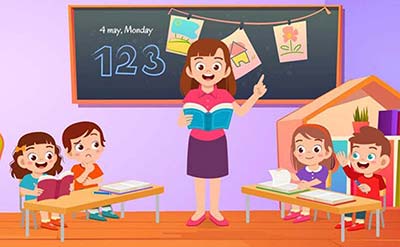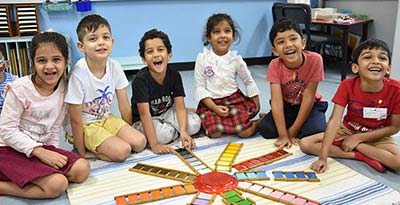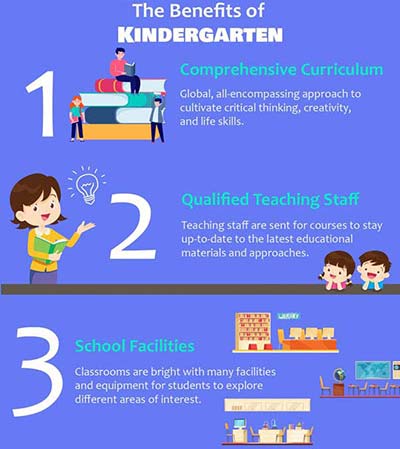
Choosing the right preschool in Singapore can be overwhelming especially if you are a first-time parent. Preschool sets the foundation for early childhood skills.
While all Preschools teach the same curriculum, they can do so differently. The two common teaching approaches in Singapore are Montessori and Kindergarten:
Gaining popularity in recent years amongst parents in Singapore, Montessori method of education supports individuality of every child as students have control over the path and pace of their learning. For students in a Montessori classroom, this means the choice of “work” that is matched to his/her individual interests, strengths, and abilities, thus ensuring optimal learning in an emotionally supportive environment.
Aside from reading, writing, and watching, the Montessori approach places emphasis on the education of the senses, hones their observational skills and ability to draw inferences get sharpened. It is offered to children between the ages of three to five years, most Montessori schools like NPSI Singapore has child-centric approach and conducive learning environment. Montessori programme tends to have a large space that is divided into multiple activity zones to encourage and engage children in exploration. This is unlike the traditional approach where students are restricted to doing activities in their seats.

In addition to encouraging children to learn at their own pace, there are other benefits to enrolling your child in a Montessori school.
Kindergarten represents the foundational years for your child's learning. Therefore, it's important that you get the very best education for your child at this time. Usually offered to children between the ages of 3 - 5 years, kindergartens in NPSI Singapore have two entry points:- Lower kindergarten (K1) and Upper kindergarten (K2). Kindergarten programme in NPSI offers a broad-based approach towards primary school academics by placing more emphasis on core subjects such as English, Mother Tongue, Mathematics, and Science.
As children tend to be more curious at this age, kindergartens encourage active and experiential learning to develop appropriate skills and knowledge. NPSI Singapore also makes use of learning methods such as Jolly Phonics and Oxford Reading schemes to provide a solid reading and writing foundation for their students.
Preschool is where your child’s learning journey begins. It is an important bridge to Primary School where students are prepared to adapt and learn confidently.

Aside from its comprehensive curriculum, kindergarten in NPSI Singapore also uses all-round learning methods to create a holistic, and creative environment for its students to learn in, by striking a balance between teacher-directed tasks and child-initiated learning.
Furthermore, the teaching staff are not just experienced in early childhood education, they are also sent for courses to stay up-to-date with the latest pedagogy and educational practices. Additionally, NPSI Singapore has a low teacher-to-student ratio to ensure that every student receives the optimal level of attention and learning opportunity to grow.
At the end of the day
Choosing the school with the right learning values is paramount when it comes to your child’s learning and emotional development. For parents who are interested in encouraging their children to be leaders and engage in play-based, self-directed learning, a Montessori curriculum is ideal. However, a kindergarten curriculum is better suited if you would like them to have a more academically-focused learning environment. Both programmes help to better prepare them for Primary school.
Having been in the education industry for six decades, NPS International School is one of the top international schools that have a favourable learning environment to nurture their students and prepare them for the upcoming journey in Primary School.
PRIVACY POLICY
© Copyright 2011 - 2022 by NPS International School. All Rights Reserved.
